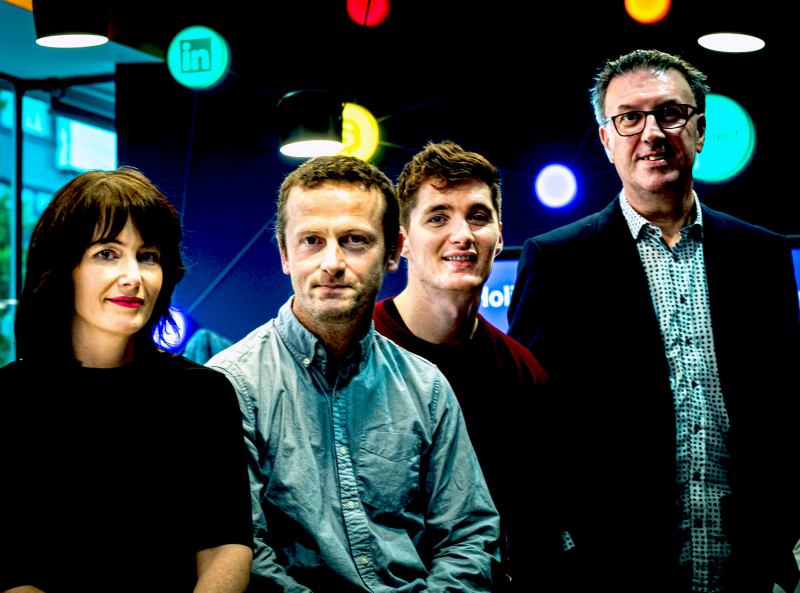Ethel Gavin speaks to ThinkBusiness about women in prison service, the qualities that they can bring to leadership, and the challenges she has faced as a woman along the way.
“It doesn’t matter where, as a woman, you end up in the ladder of your career, as long as you stay true to yourself,” says Ethel Gavin, governor of the Midland’s Prison at Portlaoise, the largest prison in Ireland. Her day-to-day responsibilities involve dealing with more than 850 inmates, including some of the country’s most notorious criminals – certainly a non-traditional career path for a woman. Indeed, Gavin, as the only woman in charge of a male prison in Ireland and the most senior female in Irish prisons, is undeniably unconventional. “I’ve been passionate about my job since day one and I knew I could make a difference,” she argues.
Gavin was 27 years old when she decided to join the Prison Service. “I was very unhappy in social service, I found it very boring, there were no promotions, money was poor, and I ended up looking for something else at that time,” she says. “I was doing a degree at night and then I happened to meet somebody who was working as a prison officer. At first, I didn’t know if it was something that I would like to do, I was sceptical about my own decision, but as soon as I joined, it was genuinely like a light bulb going on. I was absolutely passionate from day one and I stayed in the job because of that passion, knowing and believing in myself that I could make a difference. From the first day, I wanted to be a manager, whatever level I would be brought into and I believed I would get there.”
Gavin says she is “very proud to be in charge of Ireland’s biggest prison, especially being a female”, but it wasn’t all smooth sailing. Has she ever experienced discrimination in prison because of her gender? “Yes, I have experienced discrimination, not among prisoners, who treat me differently in a positive way, but among my own peers,” she says. “I was overlooked for promotion for seven years, and it was felt throughout the organisation, that because I didn’t feed into the ‘old boys club’, they were going to make me suffer. I didn’t, I definitely didn’t, because I felt that my ethics remained intact, and my dignity remained intact. But I can’t say that I have faced serious discrimination.”
“Yes, I have experienced discrimination, not among prisoners, who treat me differently in a positive way, but among my own peers.”
The biggest challenge that Gavin faced during her career “was to be believed”, she says. “You know if you think differently in our organisation, that’s something that the organisation finds difficult, they find change difficult and they fear a woman with ideas different to theirs. Getting people to believe that your idea can work is difficult, for example when I took over an open centre in 2012, the minister was ready to close that particular prison. When I left 18 months later, I think I had pushed the reset button on what an open prison centre should be. I believe I saved that open centre.”
As Gavin suggests, “women tend to be dismissed as there is a lot more language around them, as being less operational than men. That happens with men as well but I think that the impact can be worse for a woman. Historically, when the HQ would be looking at somebody as a future leader, they tend to believe the men are already there, that a woman doesn’t have enough operational experience to be a manager. But in order to be a manager, I think you need a lot more than just operational experience, you need a much wider spectrum of qualities”.
For Gavin, “women can bring empathy to leadership in a different way that men can. Even men tend to react better to women than they do to men, in a very respectful way, just like it happens in the community, this transfers into prisons as well. So women can bring calm to prison life.”
“Women tend to be dismissed as there is a lot more language around them, as being less operational than men. ”
That is the reason she hopes to see more females joining the prison service. “The cohort has increased for sure, as more women are making themselves available, but I think that we still have a long way to go. If you look at our recruit classes, much fewer women than men are joining. For example, if you take a class of 25 people, if you see three women in the class that’s still considered a lot. The percentage isn’t anywhere near even 30% of a class, so it’s still low. My vision would be more women working throughout the organisation, and we should be able to encourage women to realise that they can have a work-life balance,” she adds.
“I have two children and a job and I think once you believe in yourself as a woman and never give up on what you believe to be right, this is something worth fighting for. Women need to convince themselves of that.”
Interview by Irene Psychari.






